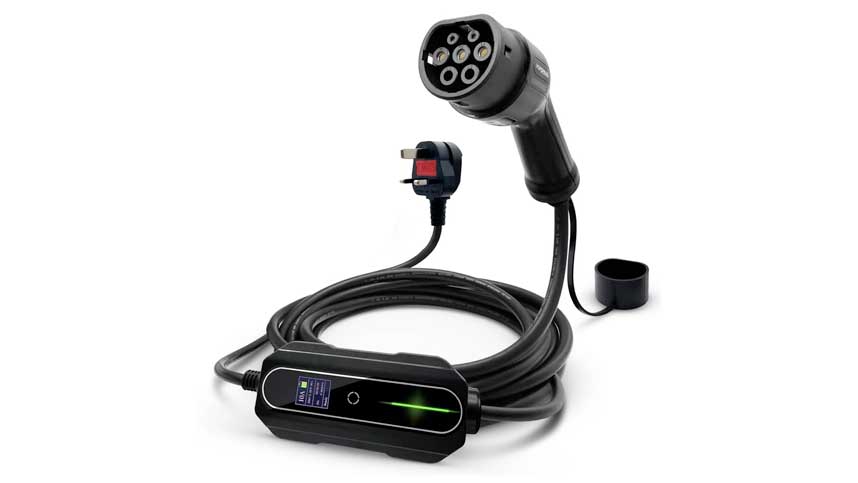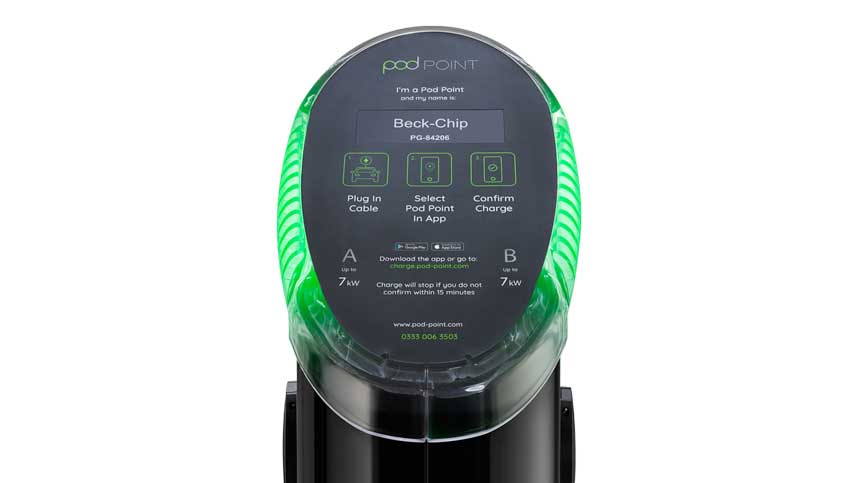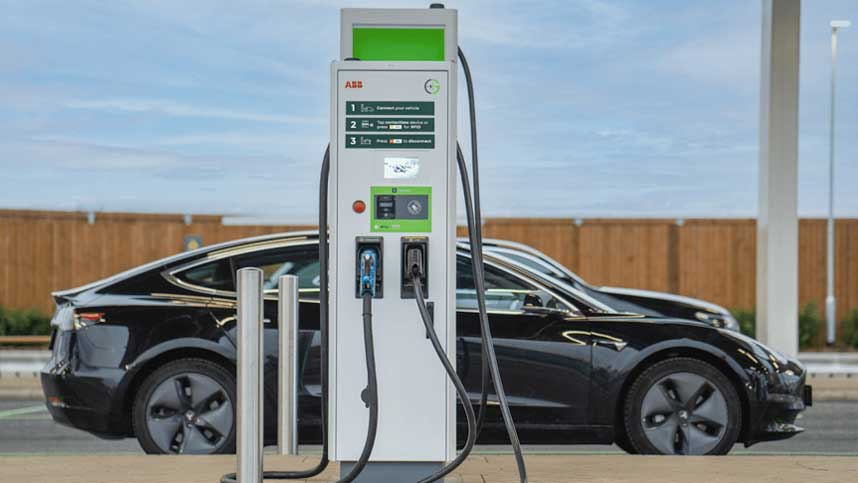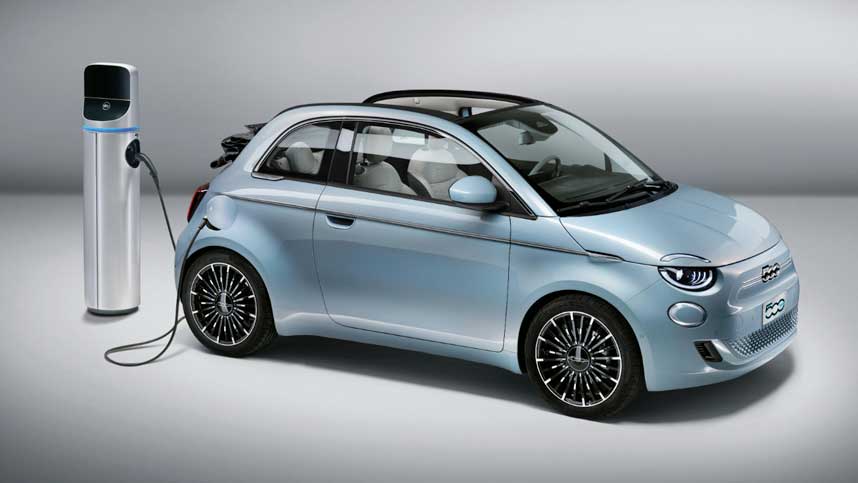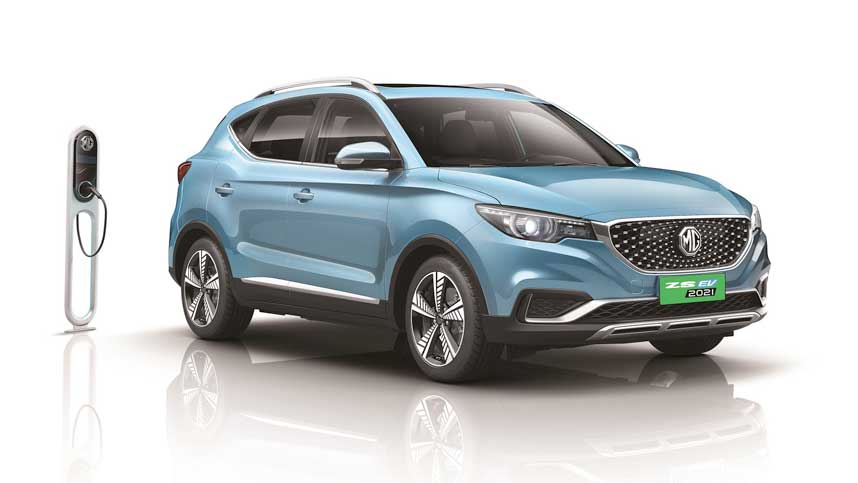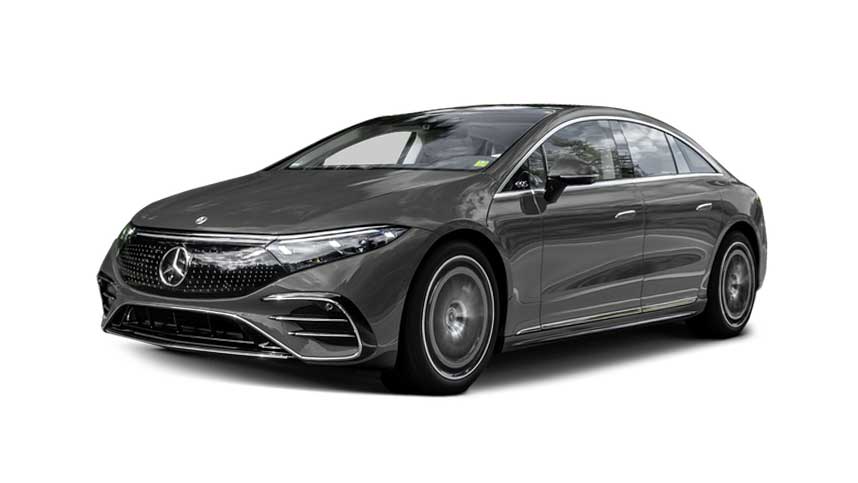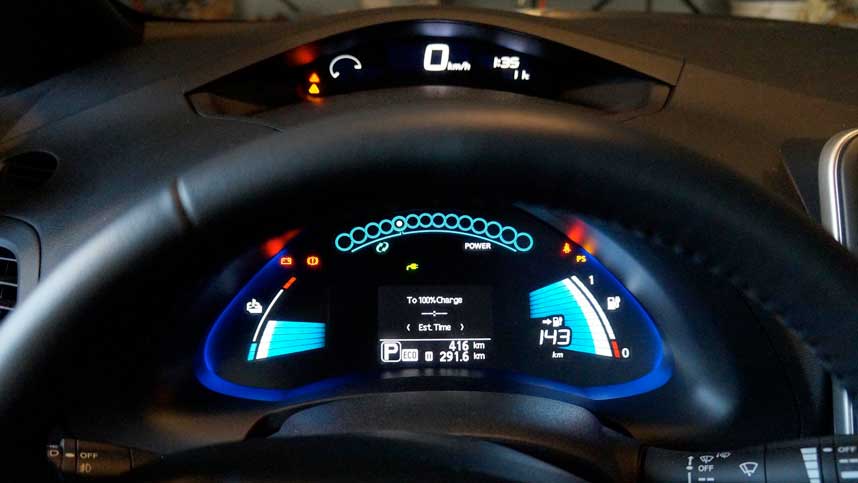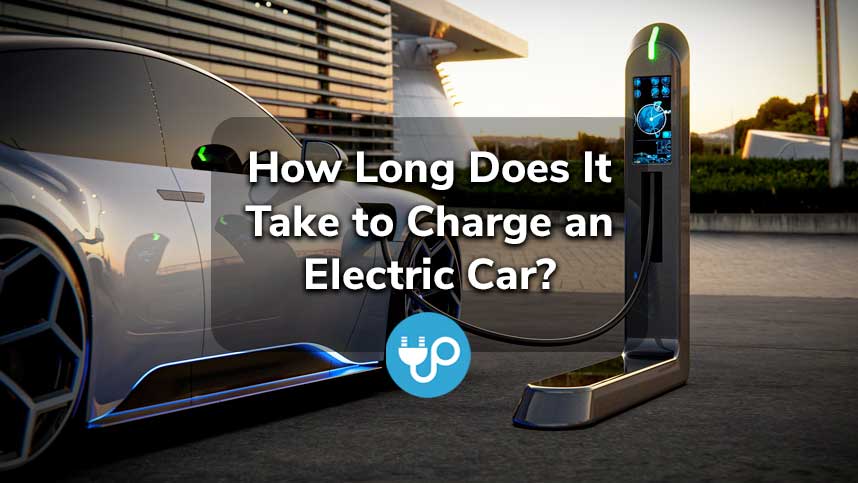
How Long Does It Take to Charge an Electric Car?
One of the most common questions that new EV owners and prospective buyers ask is - how long to charge an electric car?
Charging time is a very important consideration before choosing an ideal EV.
Yet it needs to be appreciated that various components associated with the charger's electric current and your vehicle's battery capacity affects the actual answer.
Here we discuss various EV charging approaches and underlying factors that you need to take into account when calculating EV charging time.
Chapters
Time Required to Charge an EV
|
Vehicle |
Approx. Charging Time (Empty - 80%) |
|||||
| Model | Battery | 3kW Slow | 7kw Fast | 22kW Fast | 43-50 kw Rapid | 150kW Rapid |
| Fiat 500 | 42kWh | 14 hrs | 6 hrs | 2 hrs | 50 mins | 30 mins |
| MG ZS EV (Long Range) | 72.6kWh | 24 hrs | 11 hrs | 7 hrs | 1 hr 30 mins | 40 mins |
| Mercedes EQS 450+ | 108kWh | 36 hrs | 16 hrs | 5 hrs | 1 hrs 30 mins | 40 mins |
The time required to charge an electric car is extremely varied.
It can be as little as 30 minutes to over 12 hours.
Hence there’s definitely no exact answer to this question.
It ultimately depends on the size of your vehicle’s battery, and the electrical output power of the charging point, amongst other things.
Very similar to charging a mobile phone, some people prefer to top up charge for a short period of time during the day, whilst others prefer to charge fully overnight.
Most drivers prefer to top up charge, rather than wait to fully charge the battery completely from empty to full.
In the case of the majority of electric cars, around 100 miles of range can be added with just 35 minutes of charging using a 50kW rapid charger.
Inevitably, the bigger the EV’s battery and the slower the charging point used, the longer it takes to charge your EV from empty to full.
However, to give you a real world example, typical EV’s have batteries of a capacity around 60kW.
Using a 7kW home charging point will take around 8.5 hours of charging to go from empty to full.
What is Slow Charging?
Slow charging generally takes place using an electric current at around 3kW.
As the name suggests, this method results in long charging times as the charging speed is slow.
Some large EVs might need around 36 hours of charging to manage to replenish their battery using the slow charging method.
Even an EV with a small battery of just 40kWh will need around 12 hours of charging to have a full battery.
Slow chargers are not so common nowadays, but they can still be found at some public charging points.
These types of chargers are portable and feature a three-pin plug to be used with a domestic electricity supply.
Generally electric cars will come with one of these units as standard.
That said, with the ever increasing size of the batteries of most makes and models of EVs, manufacturers only recommend using such chargers if there’s no other charging method available.
Slow charging may be sufficient enough if you do not drive many miles a day, so you should be able to top up the car’s battery overnight.
Slow charging also offers the advantage of generating less battery heat, thus helping to prolong its usable life.
What is Fast Charging?
Fast charging is becoming the most common charging method, especially for domestic use.
With fast charging, an AC (alternating current) electricity supply is used.
This will run either at 7kW or 22kW.
The latter is more common at public charging points as this requires a three-phase electricity supply.
Rarely is this type of power supply readily available in a standard residence or home.
In the case of dedicated domestic wallboxes, the rate of output generated is usually 7kW.
This results in around half the time slow charging would take to achieve a charge from empty to full.
So an EV with a 40kW battery will need about 6 hours to be fully recharged, whereas one with a 75kW battery will need around 11 hours of charging.
What is Rapid Charging?
Rapid charging is the fastest way of topping up an EV’s battery.
Some chargers are able to deliver a considerable injection of energy to the battery within a short span of just 20 minutes.
The charging can range between 50kW and 350kW output.
Units that offer this kind of charging are generally found at motorway service stations and dedicated charging hubs.
However there is one important concern to bear in mind with rapid charging.
Not all EVs are able to handle this type of DC charging.
The majority of entry-level models are available with an optional upgrade that can allow for DC charging of up to 100kW.
Some more expensive models can take up to 250kW.
For example, a 40kW Nissan Leaf could be charged to 80% of its battery capacity in just an hour using a 50kW charger.
It’s generally recommended you only charge up to 80% of the battery’s capacity when using rapid charging.
Attempts to charge to 100% full using rapid chagrin carries risks.
If you go beyond the 80% threshold, the battery’s cells will be exposed to very high temperatures as the electrical currents are extremely high.
As a result, damage to the battery can easily occur, meaning the capacity and car’s driving range is depleted.
Therefore, you need to be very careful when it comes to rapid charging.
While it may appear convenient and quick, it’s important to be cautious, depending on your vehicle and how it deals with currents at that rate of output.
What is Top Up Charging?
Top-up charging is very common.
Most EV drivers take advantage of this charging method whenever they have the opportunity.
Examples of top up charging include parking and using public chargers at supermarkets whilst shopping.
The idea is to top up the battery incrementally, rather than allow it to run flat entirely.
Naturally it’s both quicker and easier to keep the cells topped up.
This helps to reduce the dreaded range anxiety, which is something that troubles many current or would be EV owners.
However many still give their EV a full overnight charge by making use of a slow or rapid charger, as top-up charging is not ideal in isolation.
Small Battery EV (40kW)
For an EV with a relatively small battery, such as the Fiat 500 EV, you should expect the following charging times:
Slow Charger (3.7kW)
If your EV battery is empty, you will need around 11 hours of charging to have it reach a full charge.
Fast Charger (7.2kW)
A fast charger is basically twice as quick as a slow charger, so you should manage to get a full charge in around 6 hours.
Fast Charger (22kW)
With this charger you should still need around 6 hours to fully charge a small battery EV.
Rapid Charger (43kw-50kW)
A rapid charger can help to speed charging time greatly.
It usually takes just one hour to fully charge a small battery EV.
Tesla Superchargers (150kW)
When it comes to a small battery EV, you cannot use this type of charger.
It would not be able to receive such powerful charging without causing serious harm to the battery.
Medium Battery EV (75kW)
An EV with a medium sized battery is generally around 75kW.
An example of such a vehicle is the MG ZS EV Long Range.
Obviously here we’re going a bit bigger, so the efficiency will suffer slightly as smaller battery EVs are the most efficient when it comes to charging.
However, with a medium sized battery you are basically in middle ground.
Slow Charger (3.7kW)
When using a slow charger, you will need around 21 hours of charging time to completely charge the battery.
Most certainly not ideal.
Fast Charger (7.2kW)
Using a fast charger around 11 hours of charging time will be needed to charge the battery from empty to full.
Fast Charger (22kW)
A 22kW fast charger is generally considered to be ideal for this battery size as charging time takes around 5 hours.
Rapid Charger (43kw-50kW)
A medium sized EV will get a full charge in about 2 hours if a rapid charger is used.
Tesla Superchargers (150kW)
Most medium size EVs can be charged with a 150kW supercharger, especially Tesla’s.
In such a case a full charge can be achieved in less than one hour.
Large Battery EV (140kW)
An EV with a large battery will inevitably take longer to charge.
So it’s important to consider the most ideal charging option.
Consider models like the Mercedes EQS 450+.
Slow Charger (3.7kW)
If you were to charge such an EV with a slow charger you would need some 30 hours.
So this is really a non-option.
Fast Charger (7.2kW)
A 7kW fast charger can speed things up a bit even though it is still not an ideal option.
Charging time would typically take around 15 hours, which is still quite a long time and not exactly practical.
Fast Charger (22kW)
This is one of the most common options for larger battery EVs as it generally takes around 10 hours to charge the battery completely.
Rapid Charger (43kw-50kW)
Such chargers offer a charge of 20-80%, so not exactly a full charge.
This is because charging will slow down considerably outside this range, and it could cause damage to the battery.
In one and a half hours of rapid charging you should get a good charge for such an EV.
Tesla Superchargers (150kW)
Similarly, charging between 20-80% is done with such a charger, and only half an hour of charging is necessary to achieve this.
Expected Range Per Hour of Charging
When owning an electric car, one of the most important considerations is how many miles of range you will get from the time your EV spends charging.
This will allow you to plan your journeys, and ensure you can make it to your intended destination.
The expected range per hour of charging will depend on the method of charging you use and your EV model.
The bigger your EV’s battery, the less efficient it is.
On the other hand, small battery EVs are more efficient and you can expect to get more range when charging them.
To give you a general idea, when using a slow charger of 3.7kW, it should give you around 15 miles of range per hour of charging.
When it comes to a fast charger of 7kW, around 30 miles of range per hour of charging can be added.
With a fast charger of 22kW, one can expect to get 90 miles of range for every hour the EV is charged.
Rapid chargers range between 43kW and 50kW.
With such a charger, about 90 miles of range can be added in just half an hour of charging.
With Tesla superchargers rated at 150kWh, you will be able to get some 200 miles of range in only half an hour of charging.
Factors Affecting Charging Speed
There are a number of important factors you need to take into account when it comes to charging speed.
1. Battery Size
If the battery your EV has has a bigger capacity, it is going to take longer to charge it.
2. Amount of Charge Needed
If you’re charging from empty to full, it’s obviously going to take longer for charging to be completed than if you were just topping it up.
3. Battery’s Maximum Charge Rate
Each EV will have a different maximum charge rate, and you will only be able to charge your EV up to that rate.
For example, your EV might have a maximum charging rate of 22kW.
So you will not be able to take advantage of charging at 50kW as it will not be able to sustain that rate.
So charging will need to be carried out at a slower pace.
4. Chargepoint Output Rate
How long it takes to charge your EV is dependent on the maximum charging output rate of the chargepoint you’re using.
So if your EV is capable of being rapidly charged but you’re using a 7kW chargepoint, it’s naturally going to take longer to charge.
5. Amount of Charge Present
If your EV’s battery has plenty of charge left, it will fully charge far quicker than if it were completely empty.
However, the first 80% of an EV’s battery is able to charge quicker than the final 20%.
So if you are charging the final 20% of the battery to full, this will take a little longer than usual.
6. Atmospheric Conditions
Ambient temperatures greatly affect EV battery performance.
The warmer and dryer it is, the better.
This is because when ambient temperatures are cold, it will lead to longer charging times, especially if you use rapid chargers.
In colder temperatures, EVs are also known to be somewhat less efficient.
So fewer miles will be added for the same time spent charging in warmer conditions.
Conclusion
EVs are fast becoming the choice of motorists when it comes to investing in a new modern vehicle.
However, there’s still many who doubt key factors relating to investing in an EV, particularly in relation to charging times and range.
Being aware of the aspects discussed here should give you a clearer idea of what to look out for to better understand charging times and which EV is best suited to you.
Blog Archive
- 25 New Electric Car Brands on UK Roads
- General Election 2024: Major Party Net Zero Policies Compared
- Electric Car Service Costs vs ICE
- CHAdeMO vs CCS – What’s the Difference?
- Mr EV Reviews Joosup
- What is the ZEV Mandate?
- Spring 2024 Budget: No VAT Rate Cut on Public EV Charging
- What is Regenerative Braking?
- Joosup Powers Up Inaugural Everything Electric Show
- Do Electric Cars Pay Congestion Charges?
- The UK Government is Failing Its Own Targets – EV Charger Sharing Can Plug the Gap!
- Do Electric Cars Have Gears?
- Is EV Battery Recycling Possible?
- Christmas Commuting – How to Avoid EV Charge Rage
- Electric Car Tyres – All You Need to Know
- What Price Should I Rent My EV Charger Out?
- Are Electric Cars Cheaper to Run?
- Do Electric Cars Use Oil?
- 70% of UK Councils Have No On-Street EV Charging Plans
- Joosup + waEV-Charge: Electrifying the Future Together!

